The calculated risks Reese Witherspoon and Ashton Kutcher take in first rom-com together
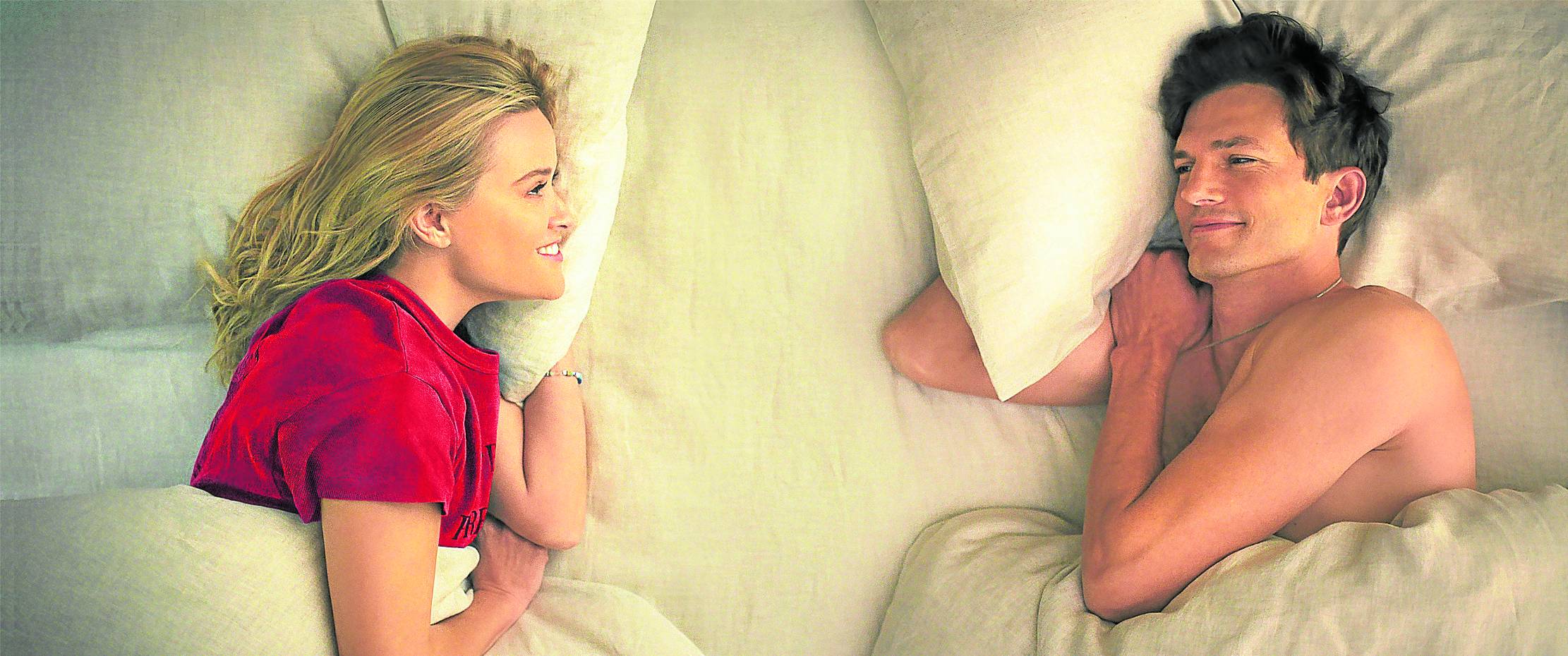
Scene from “Your Place or Mine” —PHOTOS COURTESY OF NETFLIX
Given how well the rom-com genre plays to Reese Witherspoon and Aston Kutcher’s strengths, skills and charisma as actors, you’d think it was just a matter of time before the paths of the versatile Oscar-winning actress (“Walk the Line”) and the dashing former model-turned-sitcom star (“That ‘70s Show,” “Two and a Half Men”) would cross.
Ashton has built a career-boosting cachet as a leading man in his films with, among others, Cameron Diaz (“What Happens in Vegas”), Natalie Portman (“No Strings Attached”) and Katherine Heigl (“Killers”).
Meanwhile, Reese’s body of work is a juggernaut of commercial and critically lauded projects, among them “Legally Blonde,” “Wild,” “Sweet Home Alabama” and “Election.”
Moreover, as the producer and lead star of TV series like “Big Little Lies,” “The Morning Show” and “Little Fires Everywhere,” the actress has parlayed her indefatigable energy, time-honed thespic chops and impeccable taste into critical gold, churning out impressive productions that are as thematically gritty as they are entertaining.
Now 46 and 44 years old, respectively, Reese and Ashton have finally found an age-appropriate material to demonstrate that theirs is a chemistry as potent as those seen among younger although blander stars tasked to steer Tinseltown’s romantic dramas and comedies to box-office success.
Article continues after this advertisementYes, we’re talking about “Your Place or Mine,” the heartwarming film Ashton and Reese costar in, which is set to launch on Netflix this Friday.
Article continues after this advertisement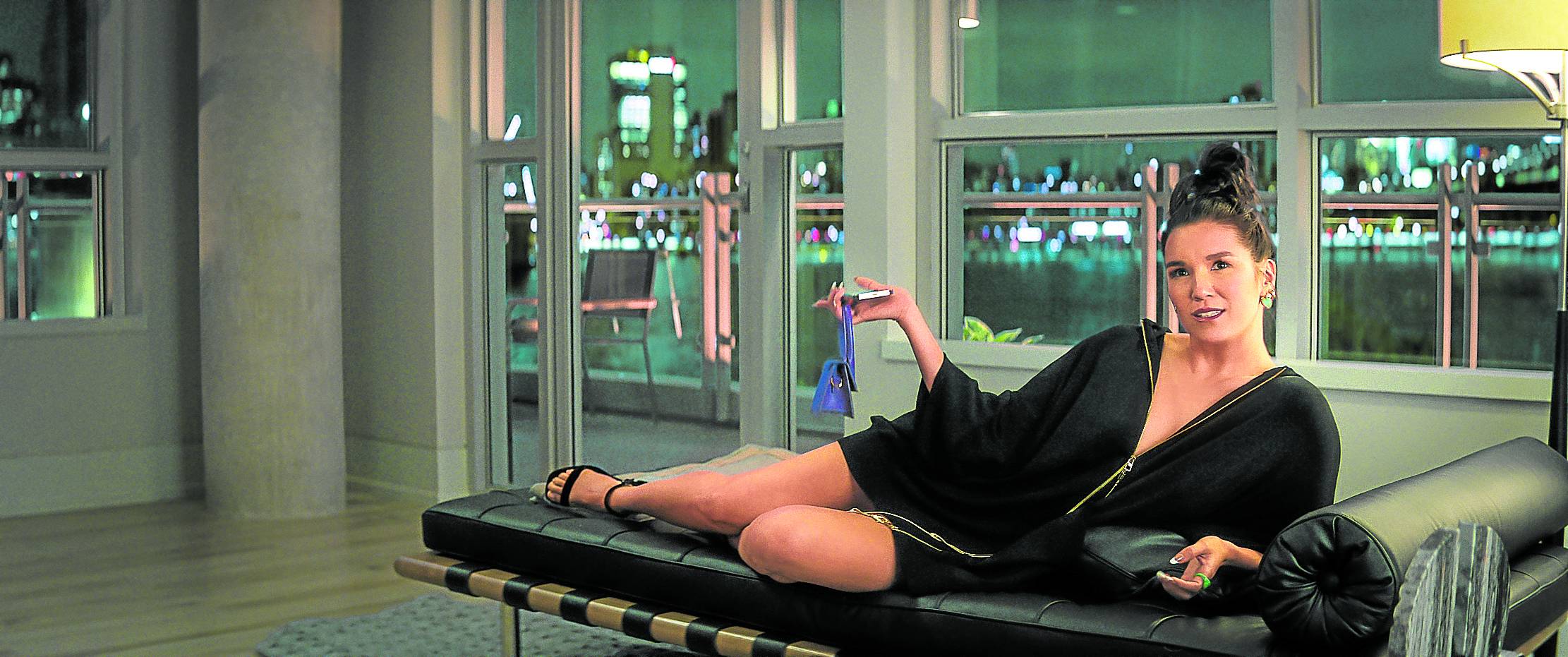
Zoe Chao
Providing exceptional support for Reese and Aston are Jesse Williams, Zoe Chao, Steve Zahn, Tig Notaro and Wesley Kimmel as Debbie’s 13-year-old son Jack. The film is helmed by writer-director Aline Brosh McKenna.
Swapping lives
The movie follows practical, risk-averse LA accountant and single mom Debbie (Reese) and stylish brand New York consultant Peter (Ashton), who swap houses for a week while the former pursues a pay grade-boosting degree in the Big Apple.
Debbie and Peter are best friends who can’t last a day without talking to each other. But therein lies the rom-com rub: 20 years ago, they reluctantly chose to ignore the sparks that flew between them after an unplanned roll in the hay.
The sudden weeklong swap, as well as the unexpected change of pace, makes Debbie and Peter realize they haven’t told each other everything after all. But what do they do when they discover that what they think they want might not be what they really need?
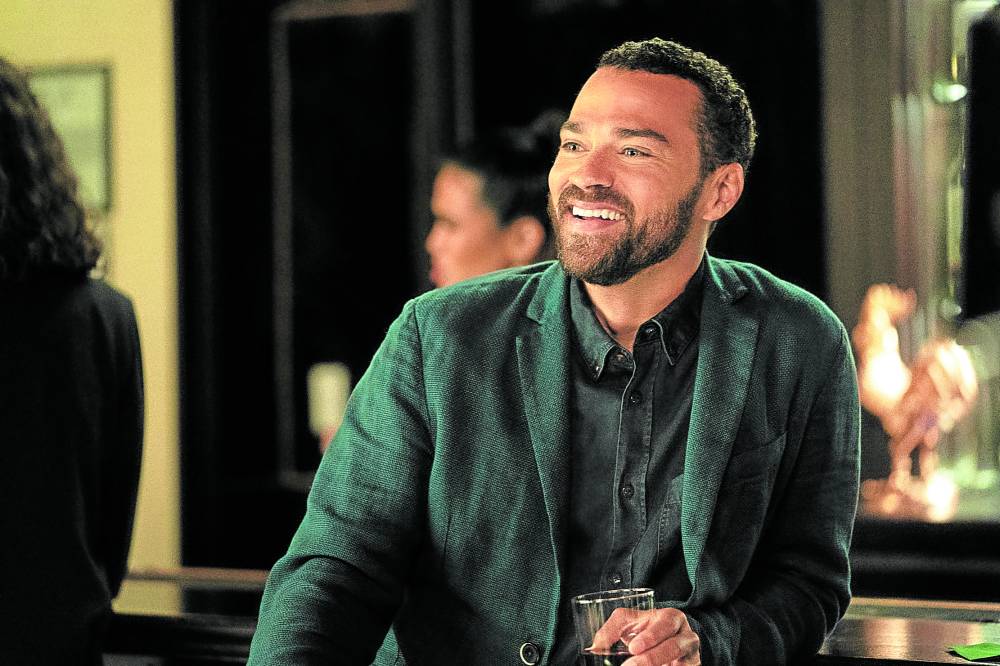
Jesse Williams
Last Tuesday, we asked Reese and Ashton in a roundtable interview what they thought it was about man’s perpetual need for connection that the film advocates, particularly for older adults like their characters in the movie.
We must admit how refreshing it was to talk to Hollywood stars who didn’t make journalists feel as if the full weight of the world was on their gargantuan, movie-star shoulders. Interacting with them, in fact, felt like we were merely talking shop with some bosom buddies.
The lovely Reese looked like Elle Woods (“Legally Blonde”) as she mulled over the question. “I think there are scientific studies about how important connection is, particularly postpandemic, after we all got so used to being isolated from each other,” she said. “This is a great time for people to be looking for community. They’re looking for love. It’s a rebirth of sort for society in general.”
We were pleasantly surprised even more when, even with a tone that reminded us of Michael Kelso, Ashton began discussing man’s needs by referencing Maslow’s pyramid.
“That could be based on Maslow’s hierarchy for needs, right?” he told us. “It’s like forging human connection with other people and having a sense of care. That’s really the essence of man. To me, every single [romantic] film is about that.”
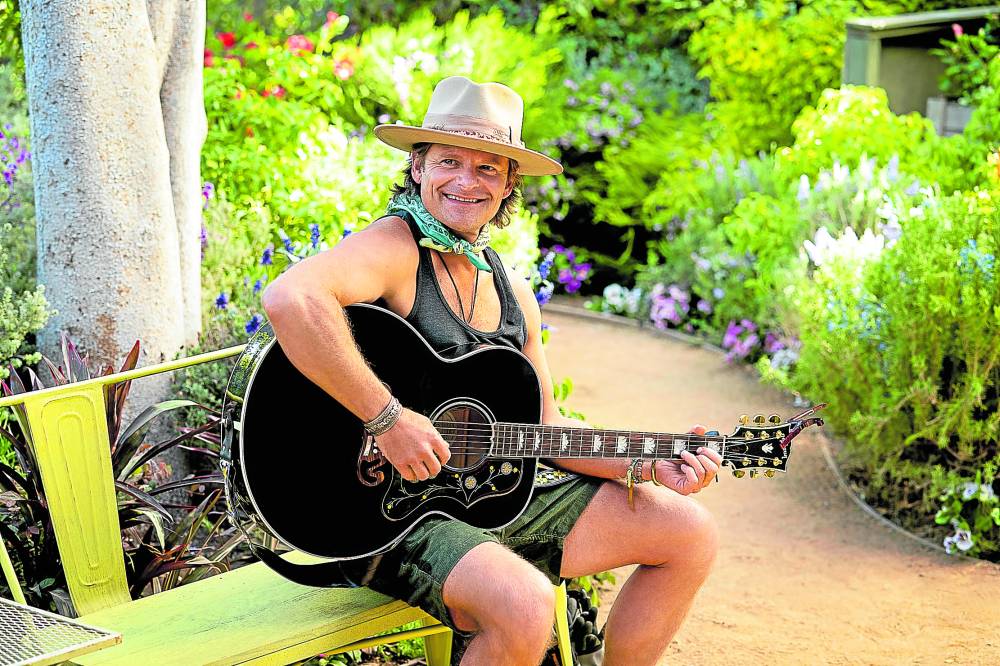
Steve Zahn
Rom-com comeback
Reese pointed out that while she has been creating content or acting in productions with serious themes lately, she believes there’s good reason for rom-coms to make a comeback.
She explained, “In an environment where there’s so much bad news, and there’s a lot that the human spirit is dealing with, I think we’ve had to deal with years and years of hard times. So a little lightness and hope for the future should be more than welcome. I believe it’s something that people are craving right now.”
Beside Reese, Ashton could be seen nodding. “Agreed. Reese is right,” he quipped, smiling. “But I’ve never ever stopped loving rom-coms. In the film industry, this is the type of movie that comes in and out of people’s favor … like a fad. You get a couple of good ones made, they do really well, then the market gets saturated with them.
“Suddenly, some executives would say, ‘These are the kinds of movies that we can make money off of, so that’s what we need to make!’ Then, they make a bunch of them, and the genre becomes less interesting, or the movies get rushed.
“All of a sudden, the executives go, ‘These are the kinds of movies that don’t make money, so we can’t ever put them out again!’ Then, the movies come back. It kind of ebbs and flows. There’s somebody like the Wizard of Oz hiding behind closed doors dictating whether to make these movies or not.
“So, let’s pull back the curtain and admit that people like watching these movies. But let’s make good ones. And when we make good ones, people will watch them. That’s my take on that.”
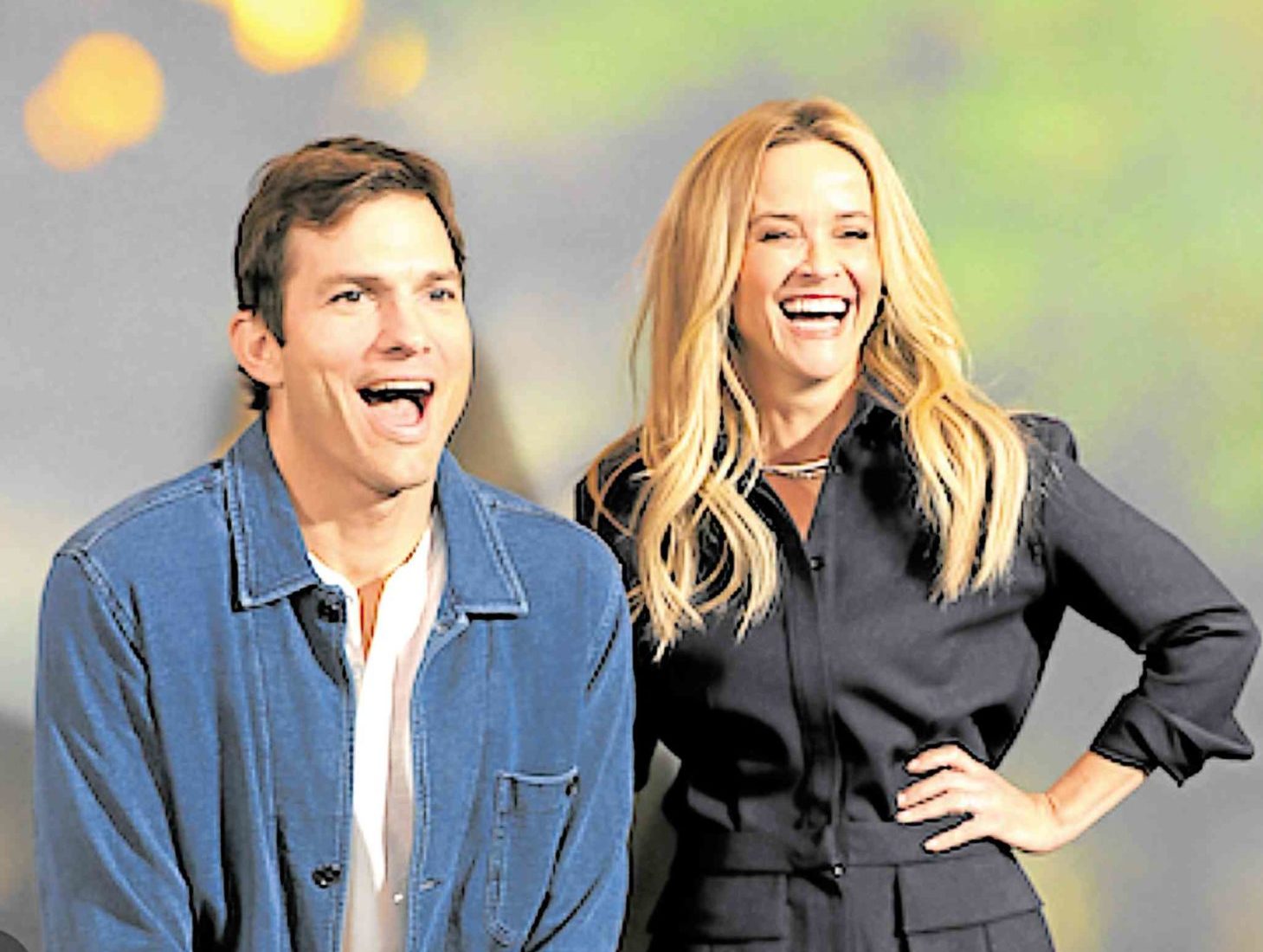
Ashton Kutcher (left) and Reese Witherspoon
If they were to initiate their kids into the world of rom-coms, what would their recommended titles be?
Reese replied, “My kids are a little older, so I would recommend ‘Overboard.’”
“Mine would be ‘Sleepless in Seattle’ and ‘Pretty Woman,’” Ashton answered.
Chiming in, Reese said, “I’m going to add ‘When Harry Met Sally’ and ‘You’ve Got Mail.’”
Ashton added, “And I really want to throw in ‘The Philadelphia Story,’ which would go well with ‘The Apartment.’”
Asked why it’s important for people to take chances on love, Ashton interjected, “I know you’d like to hear from my costar, but let me jump in on this … [because] Reese is less risky than me. But the risk in love is not unlike the risk that we take for everything that we do in life.
“We all think about what’s in jeopardy every time we make any given decision, whether it’s about leaving a job that we really don’t like or pursuing another job that we like more. Sometimes, taking risks is just about telling the truth to your parents about something that would be uncomfortable for them to hear. Sometimes, it’s about being honest with yourself.
“We run these calculated risks of whether or not we deserve something that we think we want, and whether or not we’re capable of getting it. But love and relationships are no different from those things.”